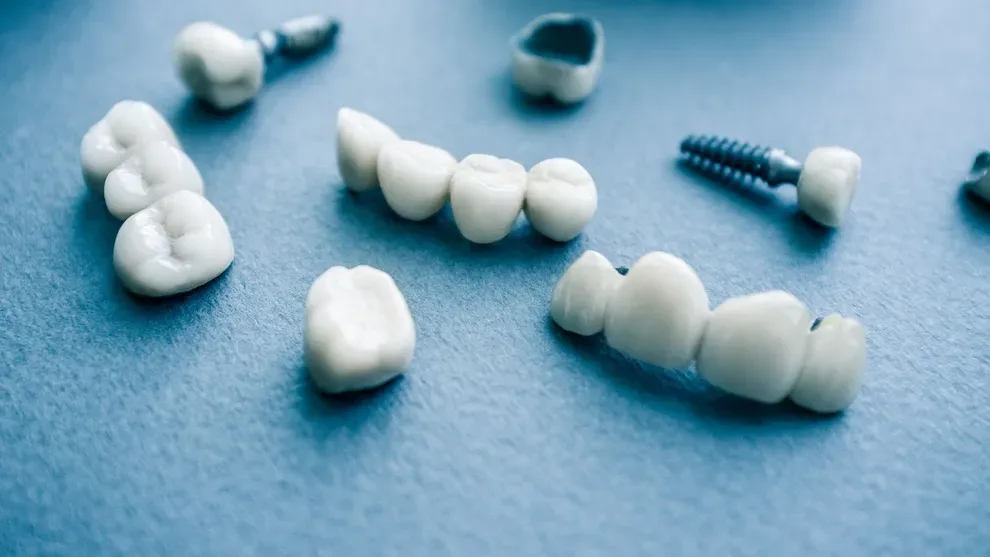Zirconia Crowns: Pros, Cons & Costs

Table of Contents
- Zirconia Crowns Cost
- Factors Influencing Crown Costs
- Why Zirconia?
- When To Get a Zirconia Crown
- Advantages
- Downsides
- Payment Options
- Placing a Zirconia Crown
- The Bottom Line
Zirconia is a type of metal that is a newer material being used in dental crowns. A zirconia crown is classified more like a ceramic crown.
Zirconia crowns are known for their strength and durability. They can have the strength of metal, but they look more like ceramic. It can be difficult to get zirconia to match the exact color of your teeth, however.
These crowns are more expensive than traditional crowns. They cost upwards of $1,000 to $2,000 each.
The upside of zirconia crowns is that they can be longer lasting, like metal crowns. They look more like a natural tooth, similar to ceramic crowns, and they are stronger and more durable than porcelain crowns. Cons include price and exact color matching.
Overall, a zirconia crown can potentially save you money, as they may need to be replaced less often than other types of crowns.
Cost of zirconia crowns vs. other solutions
Understanding the cost of a zirconia crown can help you determine if this solution is right for both you and your budget. This table can help:
| What Is It? | Average Cost | Associated Maintenance Fees |
Zirconia or ceramic | Zirconia crowns look a lot like teeth, and they’re very durable. | $1,500 to $3,000 per crown | May need replacing in 10 to 15 years |
Porcelain fused to metal | Porcelain also looks a lot like teeth, and fusing to metal makes this type of crown more durable. | $800 to $2,400 per crown | May need replacing in 10 to 15 years |
All metal | Metal crowns are very durable, but they don’t look anything like real teeth. | $800 to $2,500 per crown | Very low, as these crowns are very durable and rarely break |
Factors that can influence the cost of crowns
The prices we’ve listed above are for estimation purposes only, as your final bill could be very different. Several factors can influence the final price you’ll be asked to pay.
These factors can influence the final cost of your zirconia crowns:
Location: Placing an anterior crown costs an average of $455, but it can be as high as $749 in some locations, based on research from the American Dental Association.
Preparation: Sometimes, people need treatments like root canals before they are ready for crown placement, which can influence their final fees.
Technology: Some doctors use tools like CAD/CAM to make crowns quickly and reduce the need for multiple appointments, but that could make your care more expensive.
Why zirconia?
Dental crowns are basically “caps” that go over your tooth to restore its appearance, strength, size, and shape. They can be made out of a variety of materials — traditionally, porcelain or composite materials. They can also be crafted from metal, such as gold, which is much stronger than porcelain or ceramic.
Zirconia is a newer metal material being used in dental crowns. It is as strong as a metal but looks more tooth-colored like ceramic.
Zirconia crowns can often be crafted on site at dental offices that have CAD/CAM technology. This is used to shape and form a customized zirconia crown.
When to get a zirconia crown
There are several reasons you may need a crown placed on your tooth, such as:
To cover a cracked or chipped tooth.
To protect and reshape a tooth after a root canal.
To cover a dental implant.
To fill a gap or space from a missing tooth for a bridge.
To cover a hole left by a cavity that is too big for a regular filling.
Zirconia is a strong material. When used for a crown, it can improve your bite and appearance while protecting your tooth from future damage.
In addition to Zirconia being used for dental crowns, zirconium is also known for its usage in various prostheses for surgeries of knees, hips, fingers, and ears.
Advantages of zirconia crowns
Some of the biggest upsides of a zirconia crown are strength and durability. Zirconia crowns have been shown to offer the same level of longevity that metal crowns do. That durability could mean that your zirconia crowns need replacing less frequently than other versions, which could save you money in the long run.
Zirconia crowns are strong and resistant to chipping or breaking. This makes them a hardier option than standard ceramic or porcelain crowns. You could save money on things like repairs, especially if your crowns are on your front teeth.
Unlike other metal crowns, zirconia also has a high level of biocompatibility, meaning that your body is less likely to reject a zirconia crown. This could also save you money, as you may not be required to get a replacement if a crown fails.
Another benefit of a zirconia crown is that many dentist offices have the technology to form them in house, so you will not have to have a temporary crown placed. As a result, your crown placement can be done in one appointment instead of two. This option may not save you money, but it could save you time away from work.
Downsides of zirconia crowns
One of the cons of a zirconia crown is that it can be tricky to match it exactly to the color of the tooth. It often appears just a shade different from your natural tooth color.
Zirconia crowns look closer to tooth color than metal crowns, but they are not as easy to match as ceramic. As such, they are often coated with ceramic, but this makes the outer shell not as strong and more prone to chipping.
Zirconia crowns can fail if not prepared correctly. Not all dentists are trained properly in preparing the tooth for a zirconia crown. And not all zirconia is created equal. The formulation of some zirconia may not be as strong as it should be. If you don’t visit the right doctor, you could be asked to pay your original fee again to a doctor who can properly handle the task.
Placing a zirconia crown
A zirconia crown can be placed in one or two visits, depending on the technology your dentist has in their office. The procedure will involve the following steps:
Assessment: Your tooth will be x-rayed and examined.
Treatment: If you need an underlying issue (like a cavity or an infection), that will be addressed in a separate appointment before your crown placement.
Measurement: An impression is taken of your tooth and bite. This will guide the manufacture of your crowns.
Preparation: Often, a local anesthetic will be applied. Then, part of your tooth is either removed or filed down to ensure the crown will fit properly.
Capping: If your dentist isn’t making a crown in house, your doctor will place a temporary crown over the damaged part of your tooth.
Manufacture: A dental lab (or your dentist’s office) will make the crown.
Placement: Your dentist numbs the area and cements the permanent crown in place.
The bottom line
Zirconia crowns can provide a high level of strength and durability. They offer convenience, as they require fewer office visits to place. They can eliminate the need to use a temporary crown.
These types of crowns are often best for posterior (back) teeth, as the color may not be an exact match, although it will be better than other metal crowns. Zirconia crowns can cost more, but they also require less frequent replacements. Talk to your dentist about whether a zirconia crown may be right for your specific situation.
Payment options for zirconia crowns
Dental insurance provides the quickest and easiest way to get help with zirconia crown costs. Most dental insurance plans provide at least partial coverage for major procedures, such as crowns. In a typical plan, your insurance company will pay 50% of the costs associated with major care, including crowns.
Some dental plans limit the doctors, and others cap the annual spending. You must read your plan very carefully before you assume it will cover all of the costs of care.
The American Dental Association says many dentists offer internal programs to help people pay for care. Sometimes, patients must make interest payments, while others do not. Your dental professional can tell you more.
If your dentist doesn’t offer payments, you could consider a private loan through a company like CareCredit. This card can help you pay for healthcare expenses, including crowns.
